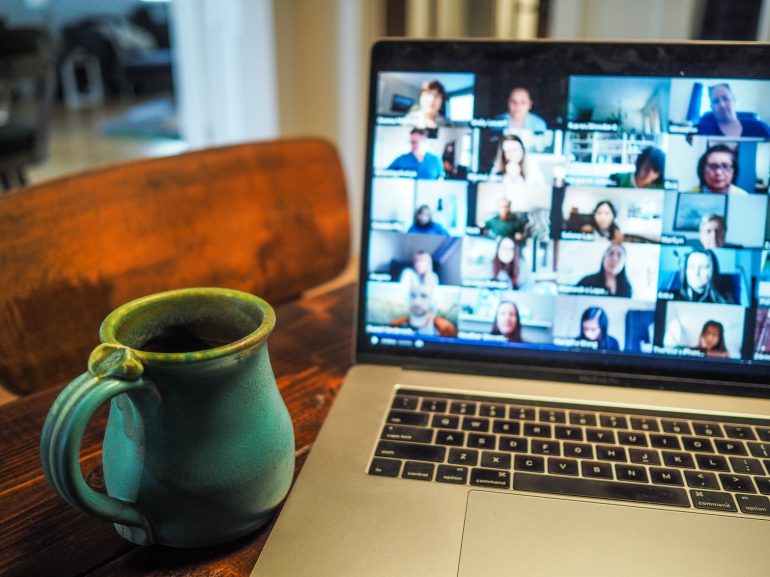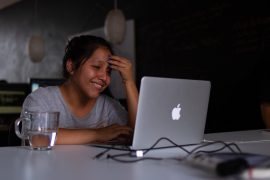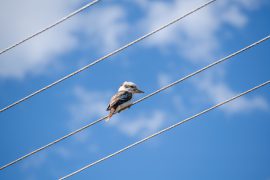Dr Margaret Spencer joined the social work program in the Sydney School of Education and Social Work as a lecturer. Following her professional qualification in nursing, Margaret completed a degree in theology, and graduated as a social worker from the University of Sydney in 1994.
Margaret was a social worker throughout the 90s, including a key role in the Family Support Services Association, building capacity of family support workers to support families where one or both parents have disabilities. In recognition for her outstanding commitments, Margaret was awarded a Churchill Scholarship in 1999, as well as a PhD scholarship, to pursue research in the then Faculty of Health Sciences. Margaret went on to work for the Intellectual Disability Rights Services, establishing programs to support parents.
In her academic life, Margaret teaches professional practice at both undergraduate and postgraduate levels. She is also the Director of Social Work Field Education.
I spoke to her about what teaching throughout Covid-19 has looked like, and in particular, how conversion to online has opened up new possibilities for experiential/embodied learning, core to preparing students for successful careers in social work.
How did your teaching plans change between January and March 2020?
Essentially, it was about adapting the principles of embodied learning to the online platform. I had already planned for 85 third year students to undertake a range of agency visits that obviously could no longer go ahead. Instead, I set up virtual agency visits using Zoom. I approached agencies to determine who was able to offer Zoom, and 15 agencies agreed to engage online.
It was a more engaged experience than the usual face-to-face arrangement
My teaching team and I decided to structure Zoom breakout rooms for small groups of students to visit the agencies. Students were able to visit two rooms (and two agencies) within a 2-hour space providing them with greater exposure; with face-to-face modes, they are limited to one agency. Students had to plan the questions they were going to ask their selected agencies in advance. This involved researching the agency online. In the breakout rooms, they spoke to experienced practitioners, asked questions, and were taken on virtual tours of the agency. It was a more engaged experience than the usual face-to-face arrangement (having a practitioner come on campus to give a guest lecture), which is sometimes more passive in nature.
Shifting this activity online also provided more options for rural and remote agencies to partner with and expose students to. For example, one of our graduates works for the Aboriginal Lands Council in Alice Springs, agreed to take part in a virtual agency visit.
Transitioning online has definitely broadened the geographical and social opportunities for the unit that we’ll take forward beyond COVID-19.
What about assessment types, were they also adapted for online?
In the on-campus teaching mode, we typically structure face-to-face social work interviews as role plays that are recorded and analysed. Responding to our new online learning space and what students were experiencing, we restructured the simulation exercise and created a “COVID-19 counselling support service for students”. Students took turns being callers and interviewers. We even included ‘real life’ professional privacy messages/processes, such as “this is being recorded for training purposes”. The interviews were recorded on Zoom so students could critique their interviewing skills. The authenticity of the assessment was greatly enhanced with students able to develop their skills in a meaningful, supervised context.
Our students also benefitted from our partnership and collaboration with the School of Occupational Therapy (SOT), an initiative led by Merrolee Penman and myself that began in 2019. SOT have a simulation space that is used to simulate hospital and rehabilitation centre scenarios in face-to-face settings between trained actors and students, to practice case assessment and management. This activity is undertaken by both social work and SOT students. We successfully converted the simulation space into an online tele-health model by structuring Zoom interviews between (actor) patients/clients and students.
In one example, an enacted case involved a client with mental illness. The students working in a ‘virtual community health centre’ had to conduct a Zoom-based health intake and assessment with this client. The teaching team used the chat feature to suggest/prompt student questions, and guide the intake. After the interview, students received feedback from the client about their approach and performance.
This activity was followed by an inter-professional learning experience, in which we brought Social Work and SOT students together on Zoom. Prior to moving to online teaching, plans had been made to do this activity face-to-face on main campus (a logistical nightmare in terms of room bookings). As part of this activity I lined up a senior social worker and occupational therapist who work in a multidisciplinary aged care team in a major teaching hospital to give a guest lecture, sharing how they collaborate and exchange interdisciplinary knowledge and skills in their everyday practice.
This guest lecture was restructured as a podcast and shared with the students prior to the online workshop. This online workshop was an ambitious (yet surprisingly achievable) activity, involving the coordination of 180 students and eight teaching staff using 24 break out rooms. Students were divided into groups comprised of social work and SOT students, who were matched according to the ‘patient/client’ they interviewed the week before. In the breakout rooms, students participated in a simulated case conference in which they exchange their interdisciplinary perspectives of the issues and needs of the patient/client they interviewed. SOT and social work teaching staff facilitated this process, moving between the breakout rooms.
Why do you think you were able to be so creative in the transition to online?
As a teaching team, we had already been considering options to support our internationals students, and at that point thinking, “this is not scalable”. But then things moved very quickly, and we just had to, and we did. Being able to be so creative was a wonderful experience. It was a steep learning curve but I was pleased to be able drew upon experience and knowledge gathered from some of Sydney’s free Modular Professional Learning Framework (MPLF) modules (M01, M03, M08, M09, M13, M14) that I completed in 2019. They provided a good launching pad in terms of thinking outside of the box.
What COVID-19 adaptations to teaching practice (if any) will you carry-forward?
Blended learning and more flexibility is where teaching is headed. In our case for example, the usual teaching pattern is two concurrent sessions in one day and this may instead be offered in online modules. We know that 3 hours on Zoom or face-to-face is not ideal. We are now thinking, “what is it we are wanting to teach?” and adapting it to the available delivery modes, instead of thinking about teaching solely in terms of hours in the classroom.
We are now thinking, “what is it we are wanting to teach?”… instead of thinking about teaching solely in terms of hours in the classroom.
Online agency visits, Zoom webinars with service users (e.g. people with disabilities or gender diversity) and podcasts with experienced practitioners have enabled greater breadth, depth, and diversity of field work preparation experience that we would like to maintain. In some respects, it was easier to coordinate some of these activities online than on campus, where simply finding rooms and accessible spaces is half of the challenge.
We will also continue to ask students to prepare for these sessions, and design interactive student-led engagement and learning activities. Overall, we have seen student experience improve with having more preparation time and pre-workshop activities built into the teaching model.





